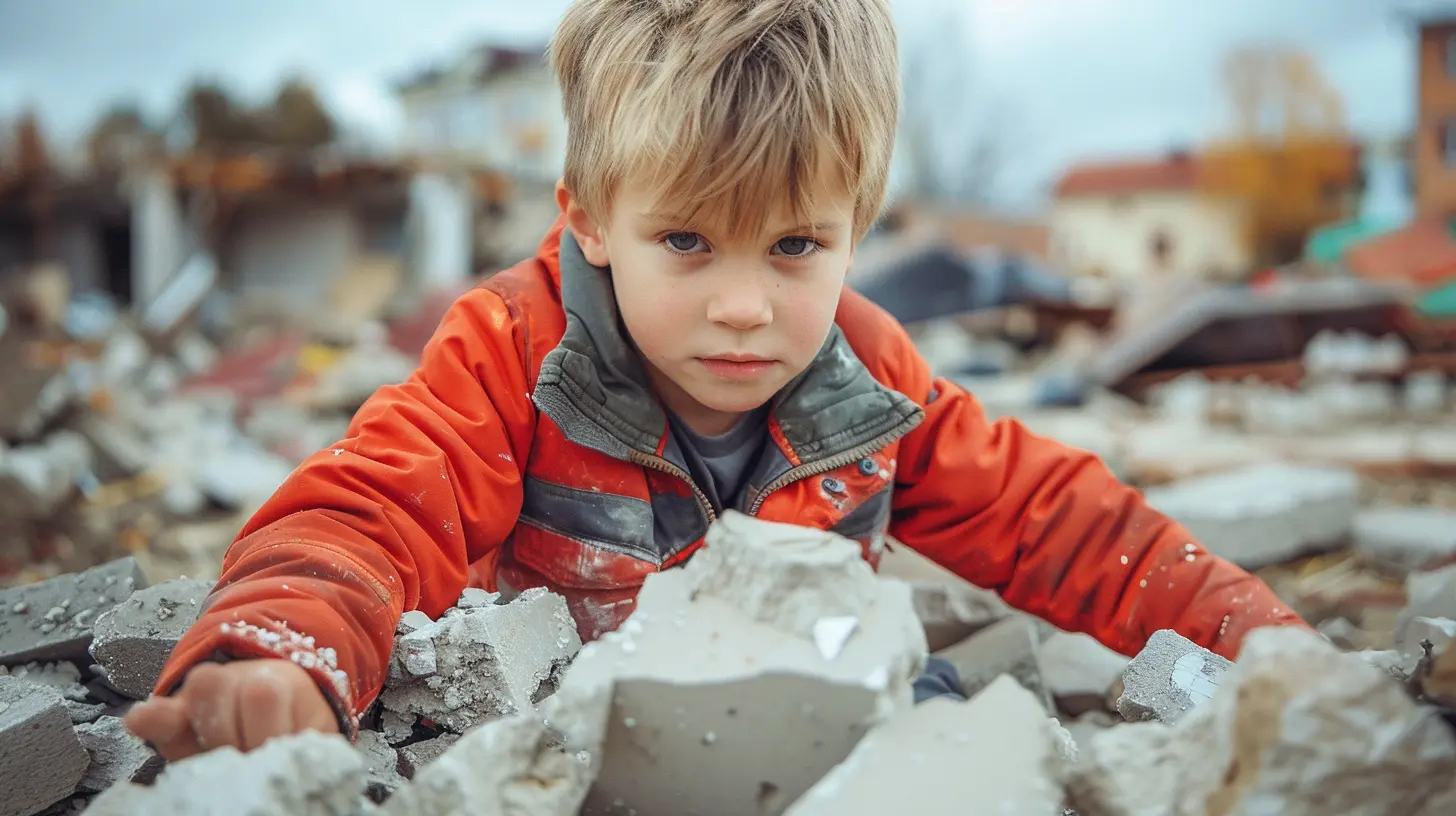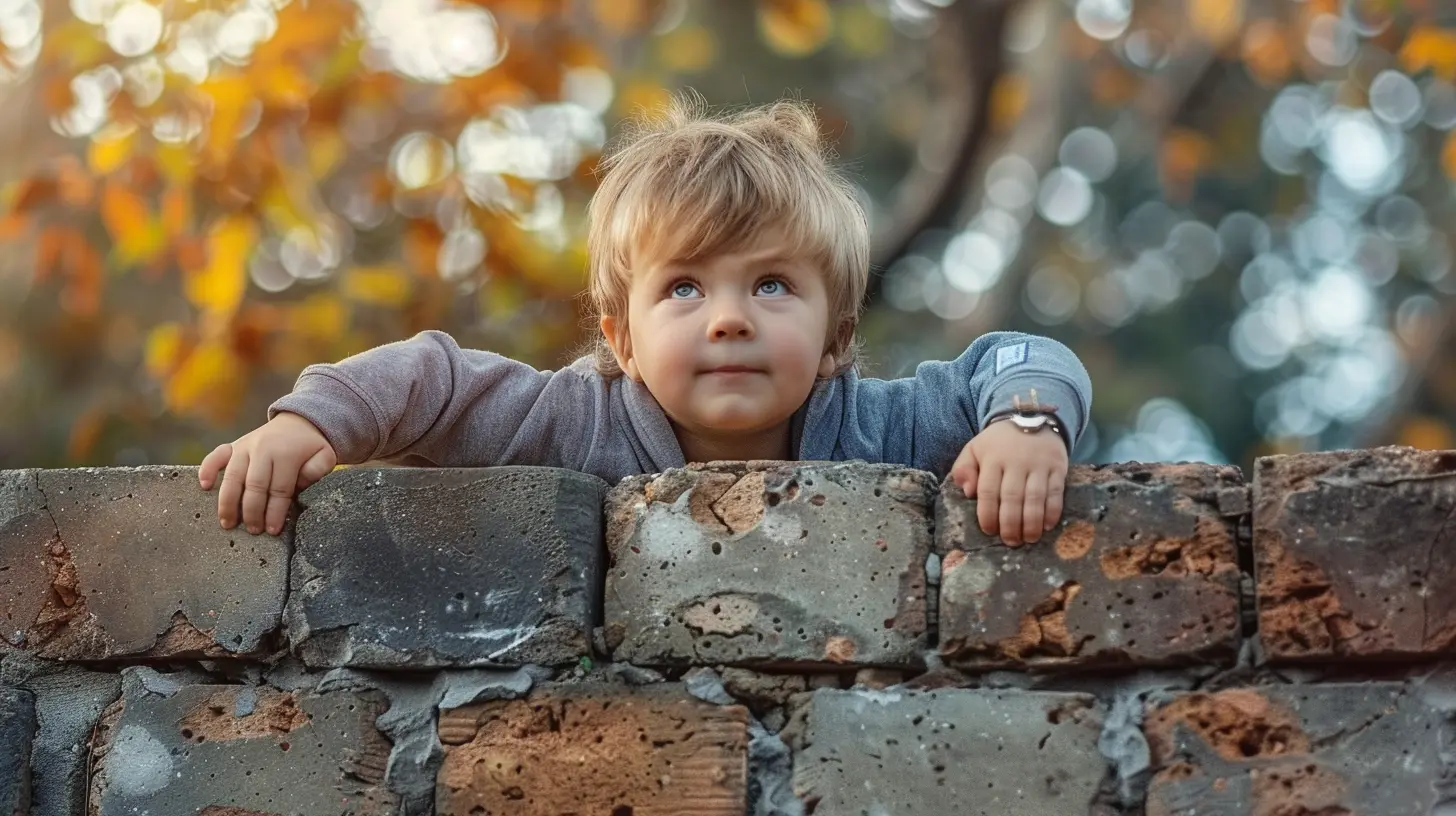Handling Failure: Helping Kids Learn Valuable Lessons
30 August 2025
Failure—it's a word that makes most of us cringe. But should it? As parents, we want to shield our kids from the sting of disappointment, but what if failure isn't something to be feared? What if it's actually a stepping stone to success?
Helping kids handle failure the right way can shape them into resilient, determined, and confident individuals. The truth is, failure is a natural part of life, and learning how to navigate setbacks is just as important as celebrating victories.
So, how can we teach our kids to embrace failure as a valuable lesson rather than an insurmountable obstacle? Let’s dive in. 
Why Failure Is Important for Kids
Let’s face it—nobody enjoys failing. But failure plays a crucial role in developing essential life skills.1. It Builds Resilience – Every time a child fails and tries again, they build emotional strength. This resilience will help them face bigger challenges in the future.
2. It Encourages Problem-Solving – Failure forces kids to think outside the box. What went wrong? How can they improve? This process strengthens critical thinking skills.
3. It Teaches Persistence – The greatest success stories come from those who kept going despite repeated failures. Think of Thomas Edison—he failed 1,000 times before inventing the light bulb!
4. It Develops a Growth Mindset – When kids learn that effort and perseverance lead to success, they start believing in their ability to grow and improve. 
Common Reactions Kids Have to Failure
Children react to failure in different ways. Some may shrug it off, while others might take it to heart. Here are a few common reactions:- Frustration and Anger – Some kids have a tough time managing emotions when they fail. They may throw tantrums or get upset at themselves.
- Avoidance – Fear of failure may cause some children to avoid challenges altogether. They’d rather not try than risk failing.
- Blaming Others – Instead of taking responsibility, some kids blame their teachers, coaches, or even their friends.
- Giving Up – Failure can sometimes crush a child’s confidence, making them believe they simply "aren’t good enough."
Recognizing these reactions is the first step. The next step? Teaching them how to handle failure positively. 
How to Help Kids Handle Failure the Right Way
1. Normalize Failure
Failure isn’t a bad thing—it just means they’re learning! Talk about your own failures and what you learned from them. Kids need to see that mistakes happen to everyone, and they don’t define us.Try saying:
"I remember when I burned dinner the first time I tried cooking. It was frustrating, but I kept trying, and now I make some pretty great meals!"
2. Encourage a Growth Mindset
Dr. Carol Dweck’s research on mindset shows that kids who believe they can improve through effort (a growth mindset) are more likely to persevere. Instead of saying, “I’m bad at math,” teach them to say, “I haven’t mastered it yet.”Praise effort, not just results. Instead of, “You’re so smart,” say, “I love how hard you worked on that problem!”
3. Teach Problem-Solving Skills
When kids fail, instead of focusing on what went wrong, encourage them to figure out solutions.Ask questions like:
- “What could you do differently next time?”
- “What did you learn from this?”
- “Who can help you improve?”
These questions shift their mindset from discouragement to problem-solving.
4. Avoid Overreacting
It’s tough watching your child struggle, but resist the urge to panic or fix everything for them. Stay calm and reassure them that failure is just part of the learning process.If they fail a test, instead of saying, “Oh no! That’s terrible!” try, “Let’s see what we can do to improve next time.”
5. Model Resilience
Kids learn by watching us. If we react negatively to our own failures, they’ll do the same. Show them that setbacks don’t derail you.For example, if you get lost while driving, instead of getting frustrated, say, “Oops, I took a wrong turn. Let’s figure out a new route.”
6. Help Them Set Realistic Goals
Sometimes, kids expect perfection right away. Help them set small, achievable goals so they experience success bit by bit.Instead of saying, “You need to score a goal in every soccer game,” try, “Let’s practice dribbling for 10 minutes every day and see how you improve.”
7. Encourage Them to Try Again
Failure is only final if they stop trying. Encourage them to give it another shot—whether it’s a difficult math problem, a tough sports challenge, or a missed opportunity in a talent show.Use phrases like:
- “I know this was disappointing, but I believe in you. Want to try again?”
- “The more you practice, the better you'll get.”
- “Everyone struggles when they’re learning something new—keep going!”
8. Celebrate Effort, Not Just Success
Success feels great, but the journey is just as important. Celebrate hard work, persistence, and improvement—not just the final outcome. This helps kids feel proud of small victories along the way.You can say:
- “Wow! You put so much effort into this project—I love your dedication.”
- “I saw how hard you worked at soccer practice—that’s what really matters.” 
What to Avoid When Teaching Kids About Failure
It's just as important to know what NOT to do when kids face failure.🚫 Don’t Shame or Criticize – Harsh words like “Why can’t you just get it right?” can crush their confidence.
🚫 Don’t Rescue Them Every Time – It’s tempting to step in and fix things, but that prevents them from learning how to handle setbacks on their own.
🚫 Don’t Compare Them to Others – Saying “Your sister did this better” only makes them feel inadequate. Let them improve at their own pace.
Turning Failure into a Learning Opportunity
Instead of viewing failure as the end, teach kids to see it as part of their journey. Every mistake is a chance to grow stronger, wiser, and more capable.You know those famous stories of people who failed before they succeeded? Tell them to your child!
- Walt Disney was once fired for “lacking creativity.” Imagine if he had given up!
- Michael Jordan was cut from his high school basketball team. He used that failure to fuel his passion and became one of the greatest athletes of all time.
- J.K. Rowling was rejected by multiple publishers before Harry Potter became a global sensation.
These stories show kids that failure isn’t the end—it’s just the beginning of something great.
Final Thoughts
Failure is inevitable, but how we handle it makes all the difference. When we teach kids to embrace setbacks as learning opportunities, they become stronger, more confident, and better prepared for the challenges life throws their way.So, the next time your child stumbles, remind them: Failure isn’t falling down—it’s refusing to get back up. And as long as they keep going, they’ll always be on the path to success.
all images in this post were generated using AI tools
Category:
Building ConfidenceAuthor:

Zelda Gill
Discussion
rate this article
1 comments
Kenneth McGivern
Embrace failure as a powerful teacher; it builds resilience and helps children develop essential problem-solving skills for life's challenges.
September 5, 2025 at 2:23 AM

Zelda Gill
Absolutely! Embracing failure fosters resilience and equips children with crucial problem-solving skills, preparing them for future challenges.


